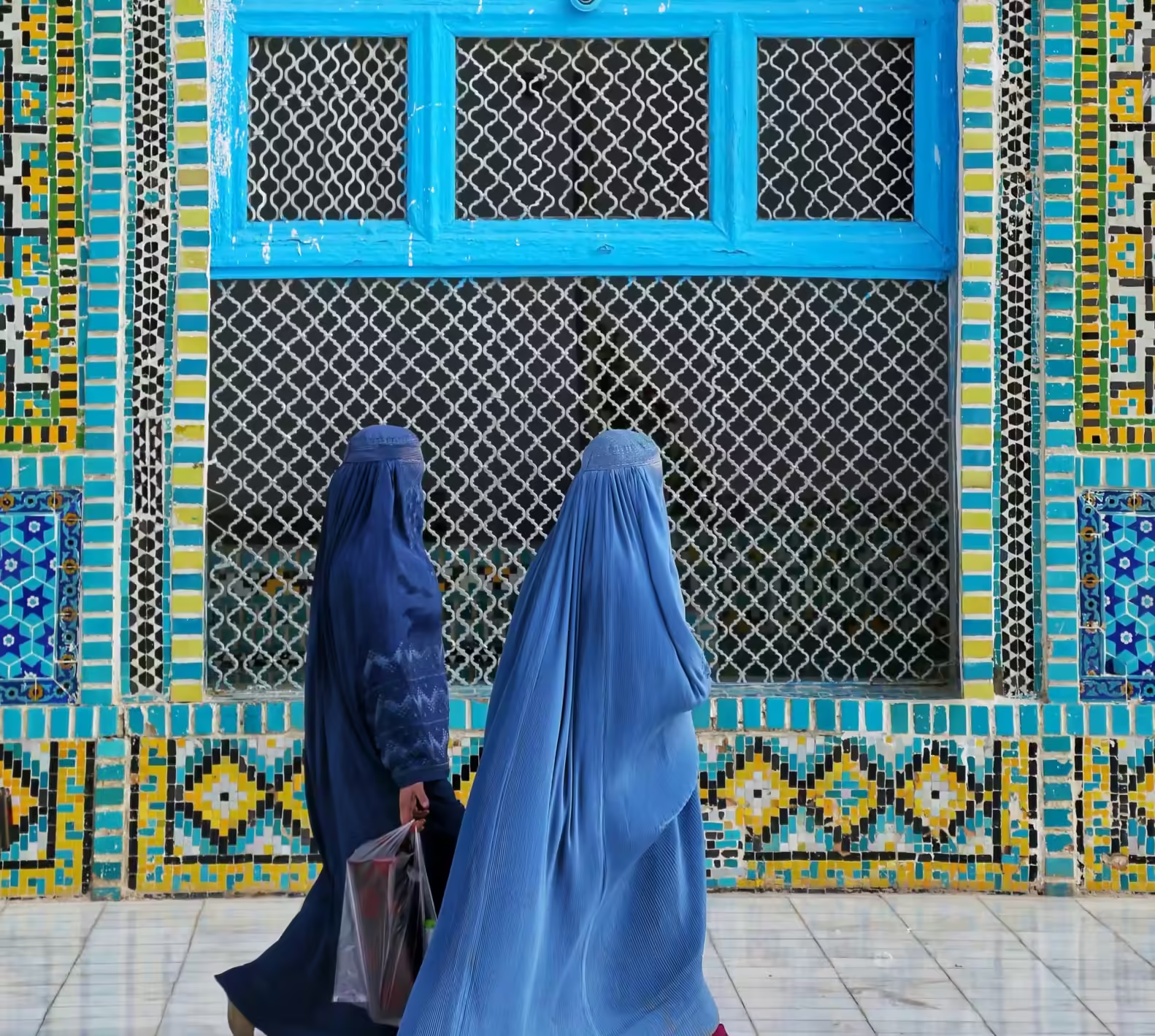Spanish Women Demand Justice for Afghan Women Silenced by Taliban
Since the Taliban regained control of Afghanistan in August 2021, they have systematically rolled back the rights of women and girls, imposing severe restrictions that have turned the country into the most repressive in the world for female rights. Now, a group of Spanish women is urging their government to take these abuses to the International Criminal Court (ICC), seeking justice for Afghan women under what they describe as ‘crimes against humanity.’
Taliban’s Harsh Decrees and the Impact on Afghan Women
The Taliban’s latest move—a 114-page manifesto released last month—officially formalizes many of their restrictive decrees into law, including a ban on the public sound of women’s voices. This draconian regulation means women cannot speak, sing, or even read aloud in public, effectively silencing them. The document also formalizes other longstanding prohibitions: no education beyond sixth grade(secondary school/ high school), no employment in most sectors, no public presence in places like parks, gyms, or salons, and no long-distance travel without a male relative.
These rules are enforced by the so-called vice and virtue police, who now have expanded powers to intimidate, detain, and even damage property to ensure compliance. The Taliban argue that these measures are in line with their interpretation of Islamic law, but human rights organizations and international bodies, including the United Nations, have condemned these actions as a severe rollback of human rights.
A Wave of Restrictions: Life Under Taliban Rule
Women and girls in Afghanistan are now facing an unprecedented level of repression:
- Education: Women and girls are banned from attending secondary schools and universities, cutting off access to education beyond the sixth grade.
- Employment: Women are prohibited from working in most sectors, including NGOs, which has drastically reduced their economic independence.
- Public Life: Women are effectively erased from public life, unable to hold leadership positions or participate in the workforce.
- Dress Code: Strict dress codes are enforced, requiring women to cover their faces and wear clothing that completely obscures their bodies.
- Travel Restrictions: Women cannot travel long distances without a male chaperone, severely limiting their freedom of movement.
- Healthcare Access: Unchaperoned women are increasingly being denied access to essential healthcare services.
- Domestic Violence: Support systems for women fleeing domestic violence have been dismantled, leaving them vulnerable.
- Child Marriage: The incidence of child, early, and forced marriages has increased dramatically, driven by economic desperation and lack of educational opportunities.
- Intimidation and Enforcement: The Taliban enforce these rules through intimidation and regular inspections, ensuring compliance with their harsh interpretation of Islamic law.
Petition for International Action
Against this backdrop, Spanish women from the organization Más Democracia have begun collecting signatures to urge the Spanish government to bring these violations to the ICC. They argue that the treatment of Afghan women under Taliban rule constitutes gender apartheid and crimes against humanity, demanding that those responsible be held accountable on the international stage.
This petition, which gathered over 1,000 signatures in its first hours, and at the time of writing has gathered 11,359, is part of a broader campaign to raise awareness and mobilize international action. The initiative seeks not only to address the dire situation in Afghanistan but also to set a precedent for global accountability in cases of institutionalized gender oppression.
A Cry for Rights, Not Protection
The organizers of the petition emphasize that Afghan women do not need protection; they need their rights restored and respected. They are calling on the international community to take a stand against the Taliban’s oppressive measures and to implement concrete actions that will help secure the rights and freedoms of Afghan women and girls.
For many Afghan women, the situation is a return to the dark times of the Taliban’s first reign from 1996 to 2001, when women were almost completely excluded from public life. Hopes that the Taliban might moderate their stance have been dashed as new laws continue to tighten the restrictions. Afghan women who once aspired to careers and education now find themselves confined to their homes, their futures stripped away.
The Way Forward
The Spanish petition is a call to action for governments and organizations worldwide. The situation in Afghanistan serves as a stark reminder of the fragility of women’s rights and the need for constant vigilance and advocacy. As Afghan women struggle to find ways to continue their education and make their voices heard, the international community faces a critical test: will it stand by, or will it rise to defend the basic human rights of women everywhere?
The outcome of this petition and the response from the Spanish government could inspire similar actions across Europe and beyond, galvanizing a global movement to combat gender-based violence and oppression. The world is watching, and the voices of Afghan women, though silenced in their homeland, are echoing far and wide in the call for justice.
To Sign the Petition Click the Following Link:
https://docs.google.com/forms/d/e/1FAIpQLSeKdlyP2LUu2G0TAzB2B45agtDnNrJWJ1nnCF-EmjG-MV46bw/viewform
Let us know your thoughts in the comments below…
Share this content:




7 comments